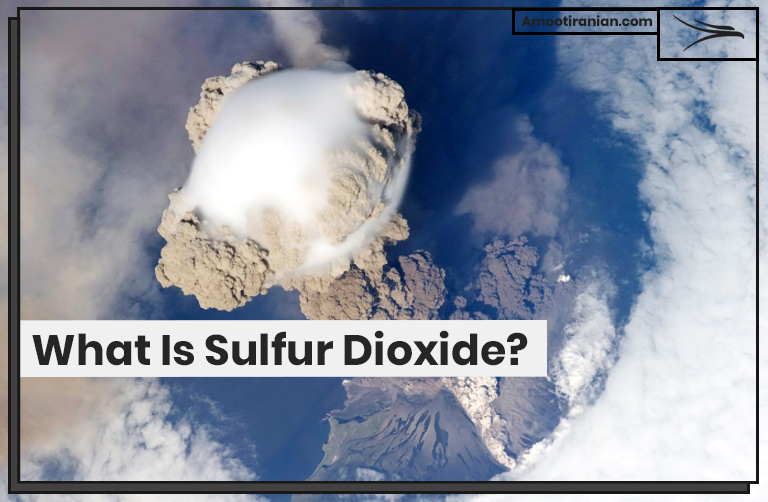
Sulfur dioxide (SO2) is a colorless gas with a pungent, irritating odor.
.
It is a chemical compound made up of sulfur and oxygen atoms.
.
.
.
It is a major air pollutant that can have negative effects on human health, particularly on the respiratory system.
It can also contribute to acid rain and other environmental problems.
.
Is Sulfur Dioxide A Compound?
What is sulfur dioxide formula?
Yes, sulfur dioxide (SO2) is a compound. It is composed of two elements: sulfur (S) and oxygen (O), with the chemical formula SO2.
.
How Sulphur Dioxide is Formed?
What Is Sulfur Dioxide Found in?
Which Is the Major Source of Sulphur Dioxide?
.
Sulphur dioxide (SO2) is a colorless gas with a pungent odor that is formed primarily through the burning of fossil fuels such as coal, oil, and gas. When these fuels are burned, sulfur present in them is oxidized to form SO2.
.
SO2 can also be formed through volcanic activity, where sulfur compounds are released into the atmosphere as a result of volcanic eruptions.
.
Additionally, some industrial processes, such as the production of paper, petroleum refining, and smelting of ores, also release SO2 into the atmosphere as a byproduct of their operations.
.
Overall, the primary sources of SO2 emissions are human activities, particularly the burning of fossil fuels.
.
Is Sulfur Dioxide Harmful to Humans?
Yes, sulfur dioxide (SO2) can be harmful to humans. Exposure to high levels of SO2 can irritate the eyes, nose, throat, and lungs, causing symptoms such as coughing, shortness of breath, and chest tightness.
.
Individuals with pre-existing respiratory conditions such as asthma and chronic obstructive pulmonary disease (COPD) are particularly vulnerable to the effects of SO2.
Long-term exposure to high levels of SO2 can also cause chronic respiratory problems and increase the risk of respiratory infections.
In addition, SO2 can react with other pollutants in the atmosphere to form fine particulate matter, which can further exacerbate respiratory and cardiovascular health problems.
.
The List of Sulfur Dioxide Health Effects
| Respiratory Effects | Sulfur dioxide can irritate the respiratory system, causing coughing, wheezing, and shortness of breath. It can also aggravate asthma symptoms, particularly in people with pre-existing respiratory conditions. |
| Eye and Skin Irritation | Exposure to sulfur dioxide can cause eye and skin irritation, including redness, itching, and burning. |
| Cardiovascular Effects | High levels of sulfur dioxide exposure can lead to heart palpitations, chest pain, and other cardiovascular effects. |
| Aggravation of Chronic Health Conditions | People with pre-existing heart or lung conditions, such as asthma or chronic obstructive pulmonary disease (COPD), may experience more severe symptoms when exposed to sulfur dioxide. |
| Increased Risk of Respiratory Infections | Exposure to sulfur dioxide can weaken the immune system, making individuals more susceptible to respiratory infections such as pneumonia. |
| Long-term Effects | Long-term exposure to sulfur dioxide can lead to chronic respiratory diseases, such as bronchitis and emphysema. |
.
Why Is Sulfur Dioxide Toxic?
Sulfur dioxide (SO2) is toxic because it can irritate and damage the tissues in the respiratory system when it is inhaled.
When SO2 is in the air, it can react with moisture in the nose, throat, and lungs to form sulfuric acid and other harmful compounds.
This can cause a range of respiratory symptoms, including coughing, wheezing, shortness of breath, and chest tightness.
SO2 can also react with other compounds in the atmosphere to form fine particulate matter, which can penetrate deep into the lungs and cause additional damage.
This is particularly problematic for individuals with pre-existing respiratory conditions such as asthma and chronic obstructive pulmonary disease (COPD), as they are more sensitive to the effects of air pollution.
.
What Is Sulfur Dioxide in Food?
Sulfur dioxide (SO2) is sometimes used as a food preservative to help prevent the growth of bacteria and other microorganisms that can spoil food.
.
It is commonly used in dried fruits, such as apricots, raisins, and prunes, as well as in some types of wine and beer.
SO2 is added to food in the form of sulfites, which are a group of compounds that contain sulfur. Sulfites are used as preservatives in a wide range of foods, including baked goods, canned and frozen fruits and vegetables, and processed meats.
.
While SO2 can help extend the shelf life of food, it can also cause adverse reactions in some people. Some individuals are sensitive to sulfites and may experience symptoms such as headaches, hives, or breathing difficulties after consuming foods that contain sulfites.
For this reason, the use of sulfites in food is regulated in many countries, and food products that contain sulfites must be labeled accordingly.
